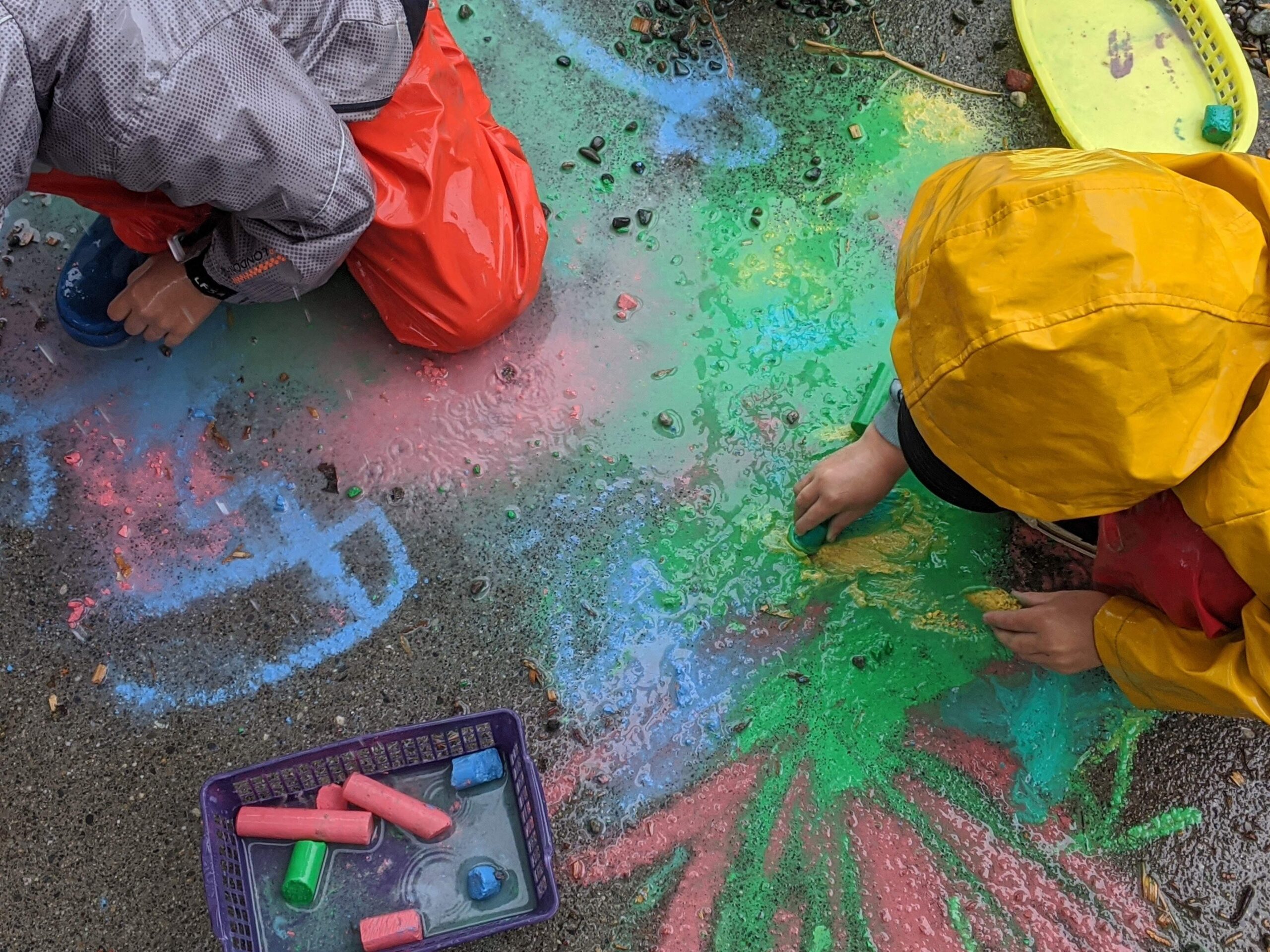
Your Role as Assistant Teacher in the Preschool Lab
Your role as an assistant teacher in the Preschool classroom is unique to our program. When you register your child at the Vashon Maury Cooperative Preschool, you are also registered as a student with North Seattle Community College. It is our belief that parenting is one of the most difficult jobs a person could ever have, and that through continued learning and practicing of new techniques in a nurturing and supportive environment, parents can begin to feel more successful in this challenging endeavor.
Our Preschool lab is a carefully planned learning environment consisting of several learning centers that both challenge and stimulate your child in a manner that is developmentally appropriate for their age group. Your job as a parent in the Preschool is to supervise your designated station and be a part of your child’s learning experience. You will work in the classroom one day a week as an assistant teacher. This is also a perfect time to observe other children so that you can see what is “developmentally appropriate” for a particular age group, as well as practice new skills acquired from monthly parent ed meetings.
The skills that you gain during your lab time at the Preschool will continue to benefit you as your child begins their educational journey. Many teachers tell us that they love having Co-op parents working in their classroom. They find Co-op parents attentive to the children, with good classroom management skills and an appropriate understanding of what can be expected developmentally. By being with them during the Preschool years, you have laid the groundwork for helping your child understand that you value their education and want to be a part of their lives. By attending parenting classes, you gain new parenting skills and demonstrate to your child the value of life-long learning.
Being a good role model is one of the best things we can do for our children.
Developmentally Appropriate Practices in Co-op Preschool
Pressures in American society placed on our children to be perfect, and to perform at an above-average level, are great. Many of us regularly question if we are giving our child enough in terms of academics, even as early as the Preschool years. Nobody wants to miss an opportunity to help his or her child succeed. However, this recent push for perfect often overlooks what is developmentally appropriate for children.
A recent study showed that parental academic expectations had a positive, but short-lived effect on children. In other words, higher parental expectations were indeed linked to an increase in academic skills in Preschool children; however, by kindergarten the other children had already caught up. Unfortunately, it was also discovered that this push for academics, and the high expectations of parents, came with a price: the children pushed to perform academically were less creative, showed more anxiety when performing tasks, and tended to think less positively about school (Rathus, Spencer A., Voyages-Childhood and Adolescence. Pp. 337).
The Co-op Preschool recognizes the disservice of pushing children to learn before they are developmentally ready (or in inappropriate ways). Many of the Co-op Preschool practices are based on the theories of child-development specialist Jean Piaget. He discovered while observing his own children at play that young children actively construct their own understanding of concepts and operations (such as numbers, classification, logical reasoning and cause and effect). He concluded that in order to fully understand these concepts children needed to act on objects, interact with people, and think and reflect on their experiences. He demonstrated that learning is most successful when children are given tasks to perform that are highly relevant to their experiences.
When we watch our children have fun in the Co-op Preschool, it is easy to forget that they are exploring and learning at the same time. Much of what is vital and essential about play is invisible to the eye of the casual observer. With the right perspective and understanding of child development, one can begin to see the deep thought that accompanies play and begin to celebrate the process! It is the co-op’s goal to promote and encourage the type of discovery and learning that comes through a child’s natural inclination. In general, making children sit for a long period of time is detrimental to how children learn. By providing many different areas for the children to explore, the Preschool is supporting a child’s characteristic mode of learning through activity and experiences.
The Preschool classroom is a busy place as children move about the Preschool, free to explore and experiment with the materials and equipment. A skilled Preschool teacher designs the curriculum and leads the classroom activities, and each day parents assist by being assigned a work station in one of the various learning centers.
While we encourage and support the need for parents to make connections with each other, we ask that you remain in your work area during exploration time, and devote your attention to the children and their participation in that area. If you need to leave your section, please advise the Preschool teacher or Parent Instructor, so a replacement can be found for you.
